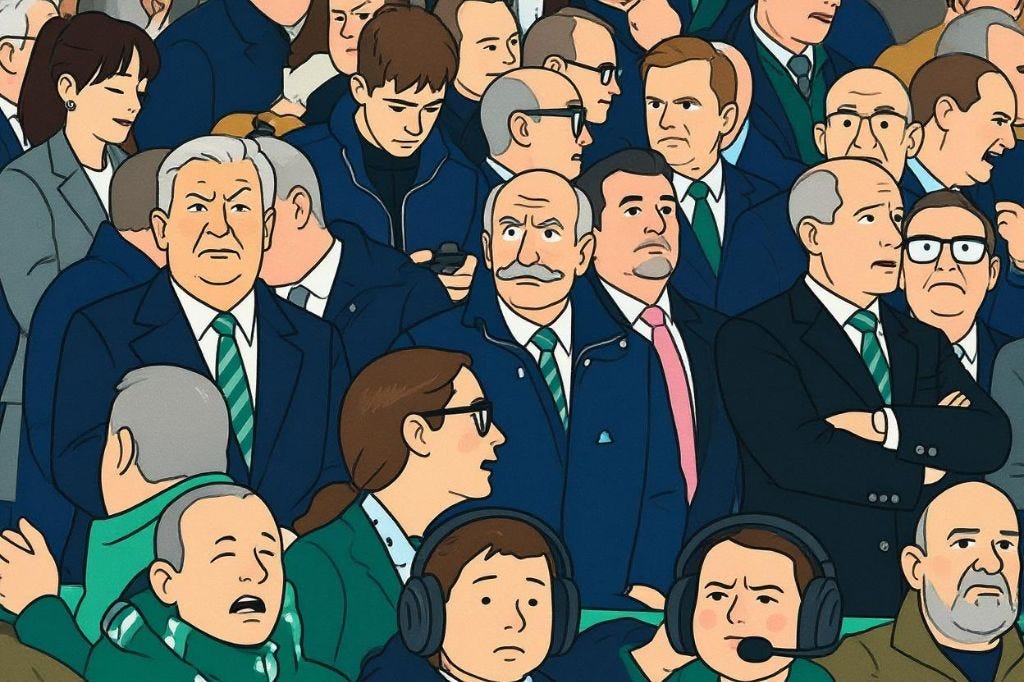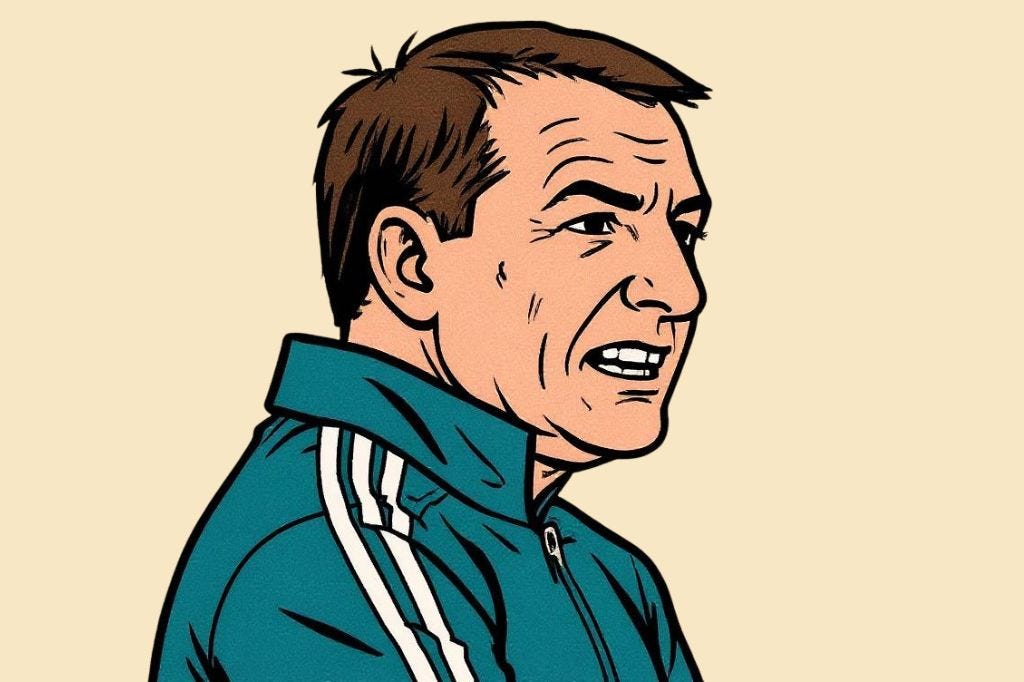Why the Celtic Hierarchy Pose a Greater Threat Than Rangers
A turbulent summer has left Celtic weakened and supporters disillusioned, as boardroom complacency and broken promises threaten to undermine Brendan Rodgers and the club's ambitions on all fronts.
The greatest threat facing Celtic Football Club today is not Rangers, nor any club on the pitch, but rather the board's enduring air of superiority and the belief among its leadership that they are untouchable - able to act as they please, with little regard for supporters, promises, or even their own manager.
As attention turns to manager Brendan Rodgers following a forgettable summer transfer window and disappointing results - including Champions League failure and a dire showing against Rangers - it’s clear that some within the Celtic hierarchy and their media allies are keen to shift blame onto him. Media speculation, reportedly fuelled by voices in the boardroom, claims Rodgers wants out and paints him as the underlying issue. Yet, Rodgers himself has publicly insisted he has no intention of quitting before his contract is up, despite mounting pressure and a lack of support from above.
One of the most disturbing patterns emerging is the Celtic board’s willingness to break promises made, both to their manager and to players. In January, top scorer Kyogo Furuhashi was sold with an assurance to Rodgers that a replacement would be brought in - a promise that was not kept and still not been kept. This summer, as multiple attacking players departed, Rodgers’ request for reinforcements was again ignored and that failure was in part to blame for Celtic’s Champions League exit at the hands of Kairat Almaty with a whimper. Former Celtic keeper Ben Siegrist had also previously claimed that the board dismissed interest from another club when he had arranged his exit from the club last year - because ‘some people on the Celtic board just didn’t respond to any of the inquiries from the other team.’
Such behaviour from board members along with the pathetic player negotiations by Harvard educated Michael Nicholson & co. has resulted in the club looking like a laughing stock in European football, and the deadline day fiasco around failing to sign a striker and blocking Yang’s departure is merely the tip of the iceberg when it comes to the hierarchy’s mismanagement of club affairs. But I guess that’s what happens when you are run by bankers and accountants, rather than real businessmen like Fergus McCann.
Despite operating with around £80 million-plus in the bank, the board opted for half-measures: cut-price deals, loans, bargain buys, and a free transfer, leaving clear gaps in the squad. Celtic’s current recruitment suggests a club more interested in building a financial war chest than in pursuing serious European ambitions or even protecting domestic dominance. As a result, fans have had enough and their chants of sack the board is just the beginning of the unrest.
The Real Threat Within
While performances on the field rest squarely on Rodgers’ shoulders and rightly so, the broader, more existential threat springs from the complacency and arrogance of those in the boardroom. Their belief that the club’s success is an inevitability - no matter how little they invest or how many supporters and promises they scorn -cripples potential, stokes division, and fuels apathy within the Celtic support base. Not only are player sales being blocked, but that key squad members have been left unsettled by broken agreements and a lack of vision for improvement - that will only heighten the problems within the club.
And while Brendan Rodgers must take responsibility for the team’s failures on the pitch this season. The true threat that Celtic face is not from across the city, but from within. A board whose high-handed actions threaten the fabric of the club far more than any rival can.
How else can you explain the untimely departure of Dominic McKay and the promotion of Lawwell stooge Michael Nicholson into a position of power - as Lawwell returned to the board after overseeing the failure to win 10-in-a-row.
McKay planned to modernise the club, bring more transparency and increase fan engagement - this clearly clashed with the longstanding culture within the Celtic board room under Dermot Desmond and Peter Lawwell. McKay’s short tenure and departure from the board merely highlights the problems within the Celtic hierarchy as the club’s power brokers are heavily resistant to fresh thinking, increased fan engagement, and modernisation.
Until those at the top are held accountable for their empty promises and financial priorities, the risk to Celtic’s league title credentials and future in Europe will persist - and grow.
It’s time that the long-tenure of Desmond, Lawwell, and their cronies comes to an end before it is too late.





Andy, superb my man.